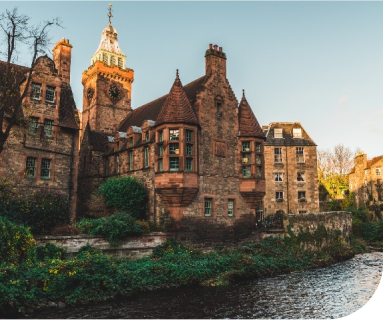LAST DAY! ⏳ Secure top scores and your uni dream. 💡Only Rp 90,000 for 40 minutes. Offer ends MIDNIGHT!
LAST DAY! ⏳ Secure top scores and your uni dream.
💡Only Rp 90,000/hour TODAY. Offer ends MIDNIGHT!
LAST DAY! ⏳ Secure top scores and your uni dream. 💡Only Rp 90,000 for 40 minutes. Offer ends MIDNIGHT!
LAST DAY! ⏳ Secure top scores and your uni dream.
💡Only Rp 90,000/hour TODAY. Offer ends MIDNIGHT!

Top Universities

Work Opportunities

Cultural Diversity

Boost English Skills

Graduate Prospects




Here are some of the reasons why studying in United Kingdom is a good idea:
The UK is an appealing destination for higher education, providing a blend of top-notch education, a vibrant cultural experience, and a wide range of opportunities.
Living in the UK offers a range of financial experiences, influenced by factors such as location and personal preferences. In terms of cost, cities such as London and Oxford tend to be pricier than other areas. Typically, international students can anticipate spending around 1,100 GPB to 1,500 GBP per month on living expenses.
Tuition Fee for International Students:
Cost of Living in UK:
10,800 GBP – 15,600 GBP/year

International students can apply for the Tier 4 (General) student visa in the United Kingdom. This visa is necessary for students who are 16 years old or older and want to pursue higher education in the UK at an institution that has a Tier 4 sponsor license. Applicants must meet certain requirements in order to be eligible for consideration. These requirements include having received an offer for a course, having enough money to cover their expenses and tuition fees, and showing proficiency in the English language.
Student visa United Kingdom requirements
Note: Proficiency in English is a requirement for students, and it can be demonstrated through approved tests such as IELTS. The application process requires filling out an online form, submitting the visa fee, and scheduling an appointment at a visa application centre to provide biometrics and submit documents. Depending on the country of origin, it may be necessary to undergo a tuberculosis test. The processing time for visa applications is typically around three weeks. Applicants who are below 18 years old are required to submit additional documentation, which includes obtaining parental consent.
To apply for a student visa to study in United Kingdom, you’ll need the following:
Being a student in the UK grants you automatic access to healthcare services provided by the National Health Service (NHS). Private medical insurance is unnecessary unless your course duration is less than six months.

Additionally, you might consider private healthcare insurance as an extra precaution. It’s a personal decision that hinges on whether you want additional coverage for health expenses that the NHS doesn’t cover. Moreover, if you already possess medical insurance in your home country, there is a possibility of extending its coverage to include your stay in the UK.




Prior to finalizing your student visa application, it is essential to settle the healthcare surcharge payment. This can be conveniently done either online or via mail. Please note that payment is required to be made using a debit or credit card. In order to complete the online application, you will be required to provide the start and end dates as indicated on your sponsorship certificate. If you prefer to apply by mail, you will need to provide the following:

• The University of Manchester
• University of Bristol
• University of Liverpool

• The University of Manchester
• University of Leeds
• City, University of London

• King's College London
• The University of Manchester
• University of Southampton

• King's College London
• Durham University
• The University of Manchester

• King's College London
• University of Bristol
• University of Glasgow
| Accommodation expenses in United Kingdom for international students | Expenses (approx) |
|---|---|
| Accommodation on Campus | 400 to £700 GBP per month |
| Shared Accommodation | 350 to 600 GBP per month |
| Private Accommodation | 500 to over 1000 GBP per month |









The career prospects in the UK for international students are highly promising, particularly in sectors such as finance, engineering, healthcare, and technology. The job market in the UK is incredibly diverse and constantly evolving, providing a wide range of opportunities for professionals. Major cities such as London, Manchester, and Edinburgh serve as prominent employment centres. Building connections and securing internships are essential for establishing a strong presence in the competitive job market. The recent visa changes have created more opportunities for graduates to remain and work in the UK after completing their studies. One notable change is the introduction of the Graduate Immigration Route, which permits graduates to work in the UK for a period of up to two years (or three years for PhD graduates). Nevertheless, the job market can be highly competitive, and landing a position frequently hinges on the candidate’s credentials, expertise, and the particular field.

One of the most significant parts of the United Kingdom, commonly known as the U.K., is the island of Great Britain, comprising England, Wales, and Scotland. Northern Ireland is also part of the U.K., located on a separate island. Ireland, located south of Northern Ireland, became an independent country from the U.K. in 1937. Northern Ireland is a mere 12 miles away from the island of Great Britain, separated by the North Channel of the Irish Sea.
Scotland and Wales have the most impressive mountainous landscapes in the U.K., characterized by dramatic knife-edged mountain ridges and picturesque deep valleys. The formation of this terrain dates back approximately 20,000 years ago, a period marked by the presence of extensive glaciers that enveloped the land during the last Ice Age. After the Ice Age glaciers receded in northwest Scotland, a multitude of lakes were formed, known as lochs (pronounced LOCKS). Some of the lochs are deep, with a long and narrow shape. There are tales of a colossal creature known as Nessie that supposedly resides in Loch Ness, located in the Scottish Highlands.
Do’s
Don’ts

Top Universities

Work Opportunities

Cultural Diversity

Boost English Skills

Graduate Prospects




Here are some of the reasons why studying in United Kingdom is a good idea:
The UK is an appealing destination for higher education, providing a blend of top-notch education, a vibrant cultural experience, and a wide range of opportunities.
Living in the UK offers a range of financial experiences, influenced by factors such as location and personal preferences. In terms of cost, cities such as London and Oxford tend to be pricier than other areas. Typically, international students can anticipate spending around 1,100 GPB to 1,500 GBP per month on living expenses.
Tuition Fee for International Students:
Cost of Living in UK:
10,800 GBP – 15,600 GBP/year

International students can apply for the Tier 4 (General) student visa in the United Kingdom. This visa is necessary for students who are 16 years old or older and want to pursue higher education in the UK at an institution that has a Tier 4 sponsor license. Applicants must meet certain requirements in order to be eligible for consideration. These requirements include having received an offer for a course, having enough money to cover their expenses and tuition fees, and showing proficiency in the English language.
Student visa United Kingdom requirements
Note: Proficiency in English is a requirement for students, and it can be demonstrated through approved tests such as IELTS. The application process requires filling out an online form, submitting the visa fee, and scheduling an appointment at a visa application centre to provide biometrics and submit documents. Depending on the country of origin, it may be necessary to undergo a tuberculosis test. The processing time for visa applications is typically around three weeks. Applicants who are below 18 years old are required to submit additional documentation, which includes obtaining parental consent.
To apply for a student visa to study in United Kingdom, you’ll need the following:

• The University of Manchester
• University of Bristol
• University of Liverpool

• The University of Manchester
• University of Leeds
• City, University of London

• King’s College London
• The University of Manchester
• University of Southampton

• King’s College London
• Durham University
• The University of Manchester

• King’s College London
• University of Bristol
• University of Glasgow
| Accommodation expenses in United Kingdom for international students | Expenses (approx) |
|---|---|
| Accommodation on Campus | 400 to £700 GBP per month |
| Shared Accommodation | 350 to 600 GBP per month |
| Private Accommodation | 500 to over 1000 GBP per month |

Register With Gold Star Education And Talk With Our Expert Counsellor








The career prospects in the UK for international students are highly promising, particularly in sectors such as finance, engineering, healthcare, and technology. The job market in the UK is incredibly diverse and constantly evolving, providing a wide range of opportunities for professionals. Major cities such as London, Manchester, and Edinburgh serve as prominent employment centres. Building connections and securing internships are essential for establishing a strong presence in the competitive job market. The recent visa changes have created more opportunities for graduates to remain and work in the UK after completing their studies. One notable change is the introduction of the Graduate Immigration Route, which permits graduates to work in the UK for a period of up to two years (or three years for PhD graduates). Nevertheless, the job market can be highly competitive, and landing a position frequently hinges on the candidate’s credentials, expertise, and the particular field.

One of the most significant parts of the United Kingdom, commonly known as the U.K., is the island of Great Britain, comprising England, Wales, and Scotland. Northern Ireland is also part of the U.K., located on a separate island. Ireland, located south of Northern Ireland, became an independent country from the U.K. in 1937. Northern Ireland is a mere 12 miles away from the island of Great Britain, separated by the North Channel of the Irish Sea.
Scotland and Wales have the most impressive mountainous landscapes in the U.K., characterized by dramatic knife-edged mountain ridges and picturesque deep valleys. The formation of this terrain dates back approximately 20,000 years ago, a period marked by the presence of extensive glaciers that enveloped the land during the last Ice Age. After the Ice Age glaciers receded in northwest Scotland, a multitude of lakes were formed, known as lochs (pronounced LOCKS). Some of the lochs are deep, with a long and narrow shape. There are tales of a colossal creature known as Nessie that supposedly resides in Loch Ness, located in the Scottish Highlands.
Do’s
Don’ts
Customer Service
Customer Service

Enhance your platform experience to the fullest.
Register now and unlock a world of exclusive benefits tailored just for you.